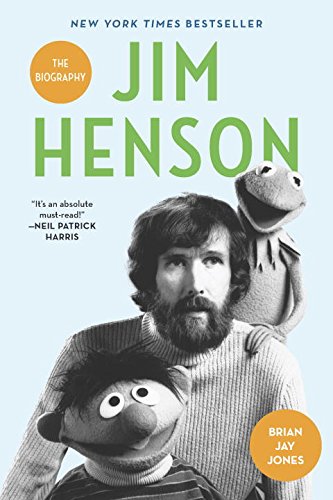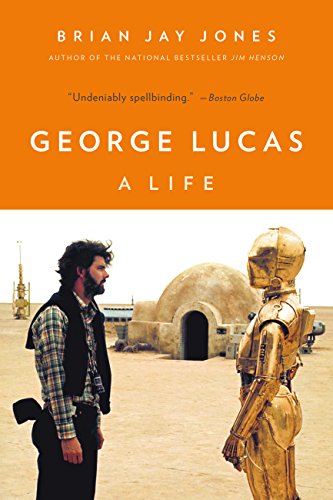If you’re lucky, every once in a while someone comes into your life who makes your life better and more interesting just by being so wonderfully, unfailingly, unapologetically human.

Kay Davies, center, along with some of the others whose lives she touched -- including yours truly, in the back row on the right.
Kay Davies was that way for me. She was my boss for most of my twenties, when she came into the office of Senator Domenici as the new Legislative Director in late 1990. Kay had worked for the Senator before, in the early 1970s, and had then gone on to a distinguished career working in the State Department for President Reagan—her favorite story, and one she re-enacted for us frequently, was striding into her empty State Department office with her boxes under her arm on the morning Reagan was sworn in, and answering the ringing telephone only to be told that the Iranian hostages were being released at that very moment.
Kay was loud and brassy and opinionated, and when she walked into our little suite of offices in 1990, she scared the hell out of almost all of us. But she was also wonderfully open minded—and when she came into an organization where most of its senior staff had moved on to other jobs after the 1990 election, Kay did something that, knowing her now, was typical of her: she put her faith in all of us snot-nosed twentysomethings, letting us slide into those empty chairs and take on the responsibilities of senior legislative staffers.
Some might disagree, but I’d say it was a good investment—and over the next seven years, I learned a lot. Almost immediately, Kay and I were working together, poring over a proposed revision to the sacred Civil Rights Act. It was an important but highly technical change, steeped in obscure legal precedent—and since neither of us had a legal background, we would sit in her cramped office reading through policy papers, calling the Justice Department on speakerphone, arguing over language, and drafting statements (she would always insist on typing, pounding away on her computer keyboard as I paced the narrow room behind her talking my way through a paragraph). She would lose her patience on the phone when she thought White House staffers were trying to brush her off, snapping a pencil angrily in her hand with an audible POW! And always, always there was a cigarette burning, slowly filling her office with a gauzy gray-blue haze.
She could manage a meeting like no one else. She always came prepared, usually with an accordion folder bursting open under her arm, and she had little time or patience for pat answers—she would call bullshit on anyone the moment she caught the first whiff of it and ask them firmly to start over and try again. And she was smart; she was the first person I ever met who could read through a lengthy document and summarize it in four sentences or less—an unbelievably important skill in politics—and she could always come up with a really good, real-life example to illustrate her point. She was passionate about policy and politics, her voice rising higher and louder and she made her case. But she wasn’t extreme in either direction; she was mostly merely practical—and you if would walk by her office when she had the Senate floor playing on her small television, you would hear her griping at any grandstanding, regardless of which side of the aisle was carrying on.
She was tough and gruff and worked us hard — but at the end of each work week, she ensured that the office fridge was filled with beer and soda. At 6:00 p.m. on Fridays, she would crack open a beer (it was always Miller Lite), light up a cigarette, and sit down to gossip and laugh with the rest of us. In short, she was a dynamo, a whirlwind, and I loved her. I think we all did.
She was the first person I’d met who wasn’t afraid to be herself. She wore brightly colored scarves, carried huge but expensive handbags, and never held back her opinion. When she was in a hurry, she’d take these long, pounding steps that practically broadcast her mood. She loved calamari, but she loved pizza even more. She could laugh loud, and cuss even louder. Yet, even with her famously potty mouth, the worst thing she would ever call anyone was “dodo bird”—and if you made the dodo bird list, believe me, brother, you were in big trouble.
She was a mentor to me not only in politics, policy, and the world in general, but she also shaped the way I wrote. While I always marveled at her ability to write these concise policy analyses, she never considered herself a great writer—she called her style ‘bang bang bang’—but she was a fantastically brutal editor. She had no patience for overly purple prose (she’d let some creep in—it was politics, after all) and she was a strict adherent to Strunk & White’s directive to “omit meaningless words,” something I’d always struggled with. Consequently, my speeches would come back with phrases—sometimes paragraphs—crossed out so stridently that her black pen left divots in the page. Other times, the intercom on my desk would ring and she’d say—loudly, of course—”Beautiful. I sent it in.” Those moments made my day.
I still have a tendency to lean purple—but because of Kay and her black pen, I quickly (and early on) overcame the so-called Golden Word syndrome, where I was convinced every word on the page was beautiful and perfect. I didn’t always like it when some of the bits I had slaved over or was proud of because I thought they were so clever came back with a black slash through them. But I trusted her judgment and I could always see her point—a mentality that proved invaluable the first time I ever had a completed manuscript in front of a book editor. (An entire chapter had to go? Fine.)
A little more than a decade ago, Kay was diagnosed with cancer. The outlook even then was bleak—she was always being told she had less than a year to live. Yet, she kept hanging on, never losing her sense of humor, her sense of self, or her sense of her own place in the universe. She made it to my wedding—a sweltering hot July day—walking through the woods in Williamsburg by herself. We traded e-mails regularly, and I would stop by every once in a while—though not as much as I would have liked—to talk with her, move furniture, or help her with her “goddamn computer.”
She loved history and biography—she was a big fan of David McCullough and read anything on the Romanovs—and collected and framed historic prints and documents (she had, for example, a commission for an army officer signed by James Madison). We would talk for hours about books and history—her knowledge of the Civil War could be staggering—and she was genuinely proud of me when my Washington Irving biography was published in 2008. It couldn’t have happened without her—and I told her so. In fact, I told her everything she had done for me, and how much I loved her. It embarrassed her a bit—she was defiantly unsentimental (I don’t even have a photo of us together!)—but I meant every word.
Over the last few months, as Kay’s health deteriorated, she refused to let anyone feel sorry for her, and rebuked suggestions that she retire to a hospice. She wanted to be at home, with her books and her piano and her cat. I went to visit her several times, and she didn’t appear to be dying so much as she looked to be simply fading away, as if she were being slowly erased from within. Her voice, once so loud and firm, was quiet and higher-pitched, from the cancer pressing against her vocal cords. But there was still a bit of fire behind her eyes as she laughed at familiar stories or discussed something she’d read in the newspaper that morning. She was, as my pal Marron put it, “grit and determination all the way to the end.”
Kay passed away earlier this week. She was at home, just as she wanted. And typically, she insisted on no service, no obituary, and no fuss—very much like her. But I wanted to make sure she didn’t pass away without the universe taking just a bit of notice of an extraordinary woman who was once so alive, so loud, and so human—and who meant so very much to me. I’ll miss her. A lot.








Beautifully written, Brian. A wonderful tribute. Joan Edelman
LikeLike
I’m sure she is somewhere, very proud of you, and calling you a Dodo bird for making a fuss.
LikeLike
A lovely tribute to a such a strong woman who I admired greatly. BTW — she thought you were one of the greats!
LikeLike
oh. that brings tears to my eyes. I didn’t know her half as well as you, but all you say sounds familiar of the Kay I knew (esp. the smoking in her office!). What a lovely, lovely tribute.
LikeLike
Brian, that was beautiful. You know what little quirk she had that always cracked me up? Every time we went to an ATM (it seemed that we ate lunch out a lot when the Senate wasn’t in Session) she would read every direction–out-loud–that was printed on the machine, or that came up on screen. Though no direction ever changed, she would read evert single one, every single time!
LikeLike
Thank you Brian…I knew if I searched long enough I would find the whereabouts of Patricia Katherine Petska Lacock Davies. I am a former sister-in-law who watched her struggle, search, discover and conquer in her childhood days as a foster child and as an adopted teenager. Her choice of employment in the government allowed her to play the upper hand with her biological mother to discover her father. She was home free then to rise to her abilities. Finding your tribute has made my day, week! Thanks again. Mary
LikeLike